- Monkeypox outbreak: The European Union said the risk of monkeypox spreading widely was 'very low', but high for certain groups.
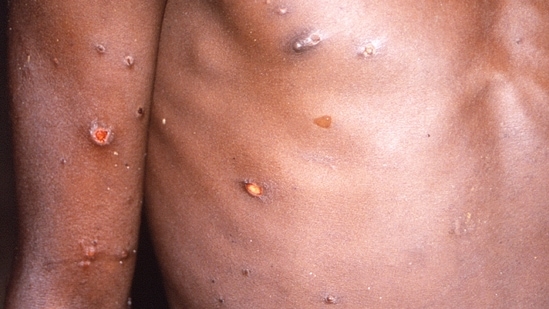
The World Health Organisation (WHO) on Monday said there was no evidence yet to support that the monkeypox virus had mutated.
A senior official of the global health body said the infectious disease that was endemic in west and central Africa had tended not to change.
WHO's emerging diseases lead Maria Van Kerkhove said the outbreaks in non-endemic countries can be contained and human-to-human transmission of the virus stopped.
"We want to stop human-to-human transmission. We can do this in the non-endemic countries... This is a containable situation," Kerkhove said during a live interaction on the UN health agency's social media channels.
The more than 100 suspected and confirmed cases in the recent outbreak in Europe and North America had not yet been severe, Kerkhove added.
Rosamund Lewis, head of the smallpox secretariat, part of the WHO Emergencies Programme, said mutations were typically lower with this virus, although genome sequencing of cases would help in the understanding of the current outbreak.
According to the health agency, the outbreaks were atypical as they were occurring in countries where the virus did not regularly circulate.
Scientists were seeking to understand the origin of the cases and whether anything about the virus had changed.
Meanwhile, the European Union said the risk of monkeypox spreading widely was 'very low', but high for certain groups. Over 100 cases were reported from some European nations, besides the United States, Canada and Australia.
"Most of the current cases have presented with mild disease symptoms, and for the broader population, the likelihood of spread is very low," ECDC director Andrea Ammon said, adding that the likelihood of further spread through close contact among persons with multiple sexual partners was considered "high".
(With agency inputs)
-
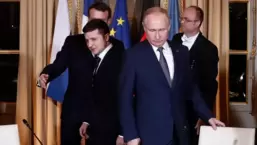
Putin, Zelensky feature among TIME's 100 Most Influential People this year
Ukraine President Volodymyr Zelensky and his Russian counterpart Vladimir Putin found mentions among TIME magazine's 100 Most Influential People in the category of political leaders. Amid the ongoing war between the two countries, the addition of the two most-talked about leaders of the year so far on the list is no surprise. What's interesting about the two leaders on the list is their description.
-
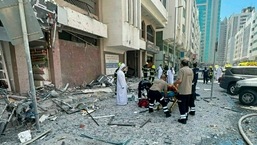
Abu Dhabi says 2 killed, 120 injured in gas cylinder blast
A gas cylinder explosion in the capital of the United Arab Emirates killed two people and injured 120 others Monday, police said, hours after authorities downplayed the incident and warned the public not to share images of the aftermath. The explosion struck a restaurant just after 1 p.m. in Abu Dhabi's Khalidiya neighborhood, just a few blocks from the capital's beachfront corniche.
-
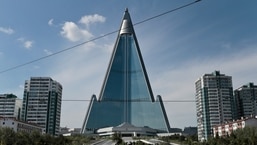
Explainer: Why were Japanese abducted by North Korea?
US President Joe Biden met Monday with families of Japanese citizens abducted by North Korea decades ago to show his support for their efforts to win the return of their loved ones. Japan says North Korea abducted at least 17 Japanese citizens, possibly many more, during the 1970s and 1980s. Twelve remain missing. They include school children and others living along Japan's coast. It has promised a reinvestigation, but has never announced the results.
-
SL Prez inducts 8 more ministers to handle economic crisis: Key points
Sri Lanka's embattled President Gotabaya Rajapaksa on Monday inducted eight more ministers in his Cabinet to handle the country's financial crisis, its worst since gaining independence from Britain's rule in 1948. The new ministers belong to the ruling Sri Lanka Podujana Peramuna, and its allies--the Sri Lanka Freedom Party and Eelam People's Democratic Party. However, the crucial finance portfolio continues to be vacant.
-
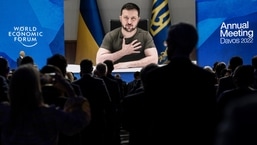
At Davos, Zelensky calls for 'maximum' sanctions against Russia
Ukrainian President Volodymyr Zelensky called for “maximum” sanctions against Russia during a virtual speech Monday to corporate executives, government officials and other elites on the first day of the World Economic Forum gathering in Davos. He said sanctions need to go further to stop Russia's aggression, including an oil embargo, blocking all of its banks and cutting off trade with Russia completely. He said that it's a precedent that would work for decades to come.
Personalise your news feed. Follow trending topics
Monkeypox virus hasn't mutated, can be contained in non-endemic countries: WHO - Hindustan Times
Read More


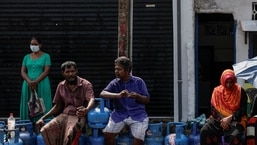

No comments:
Post a Comment